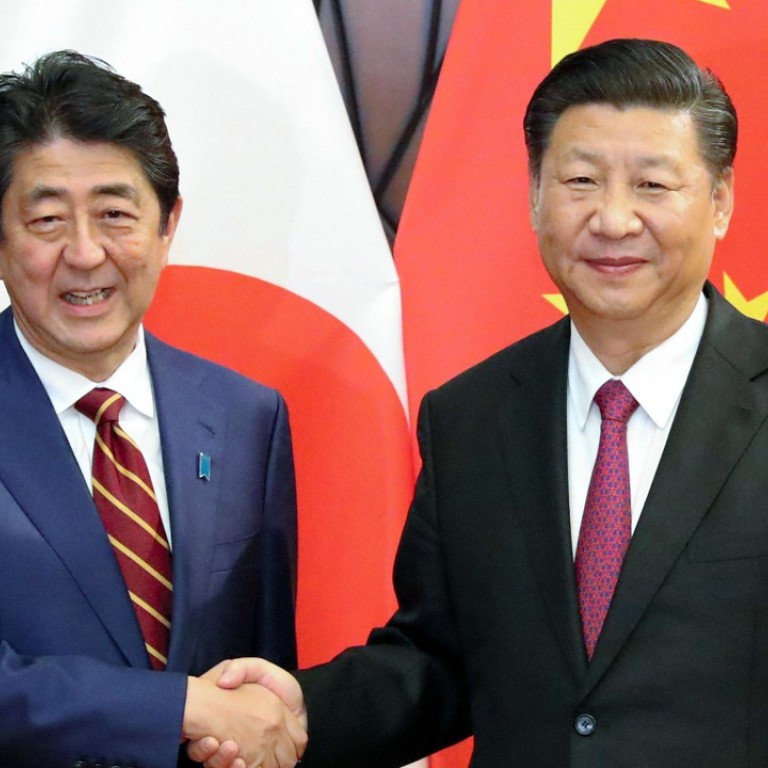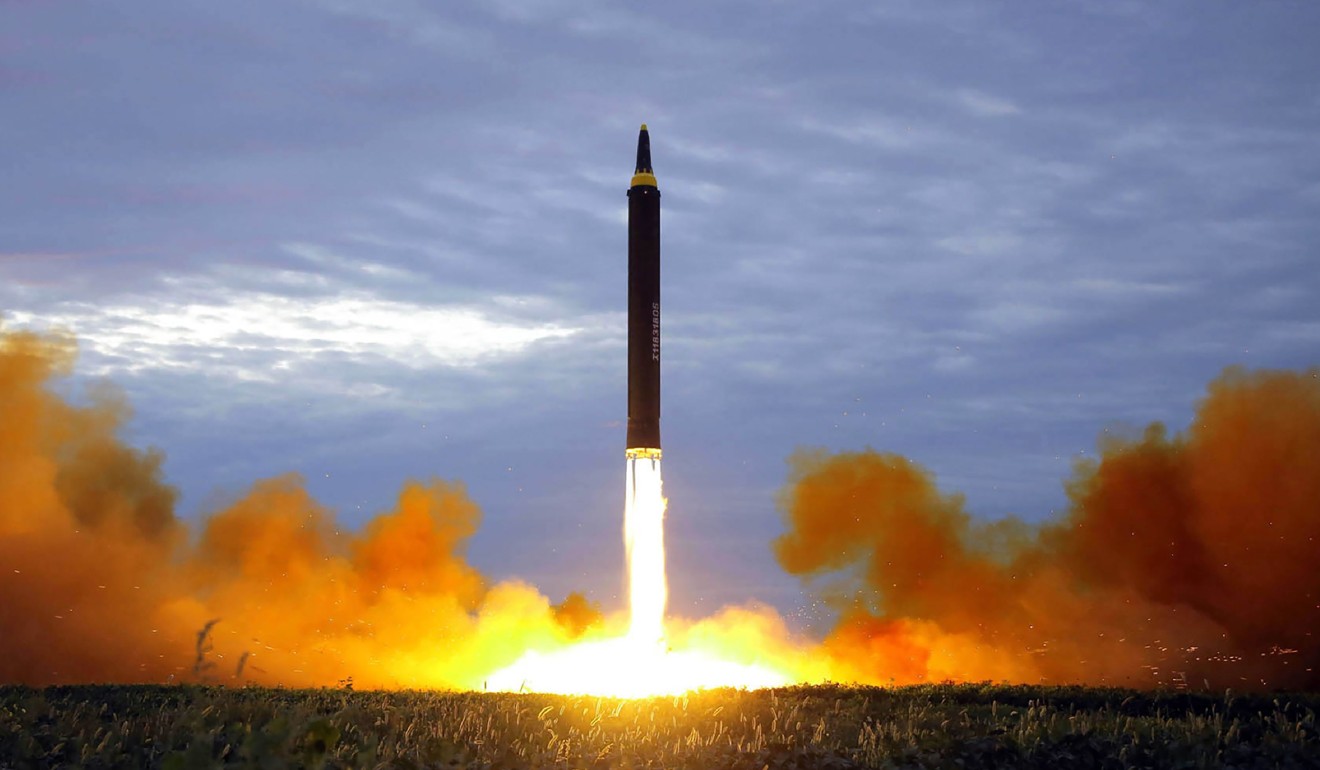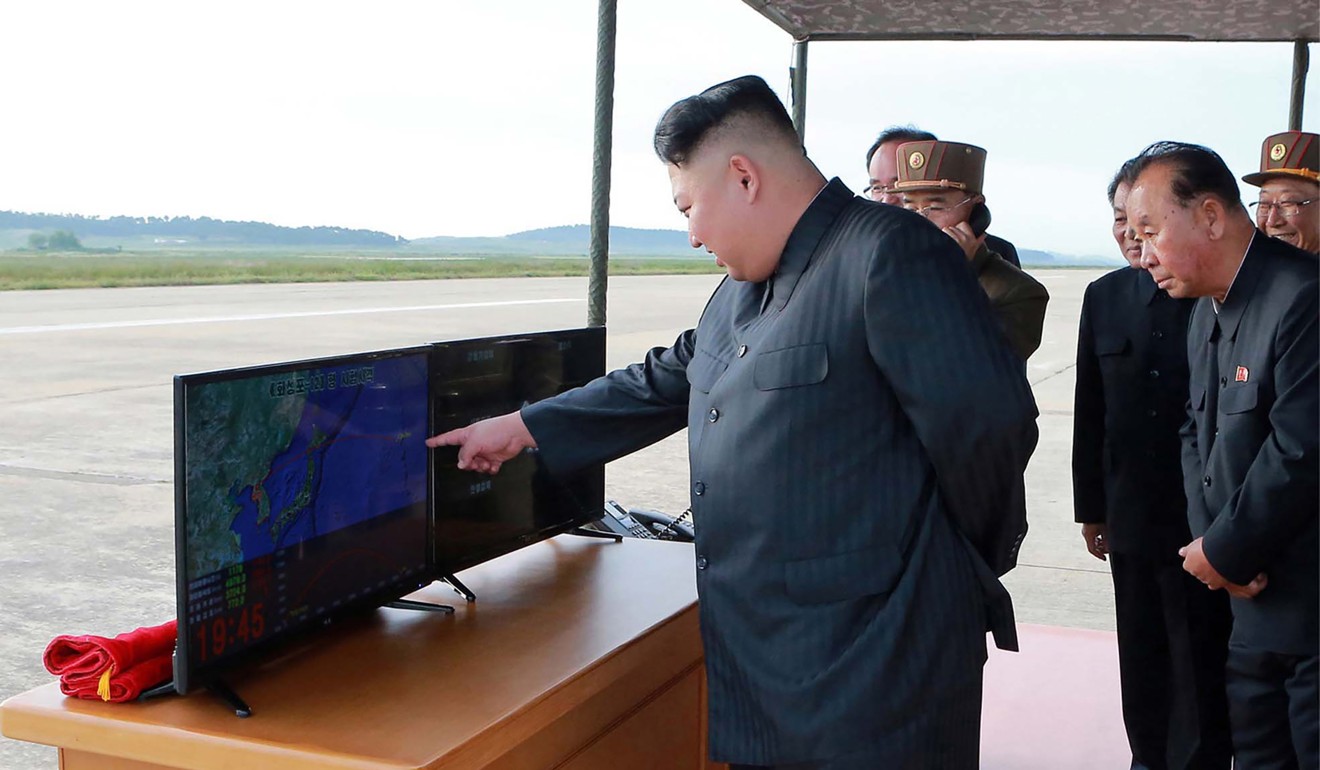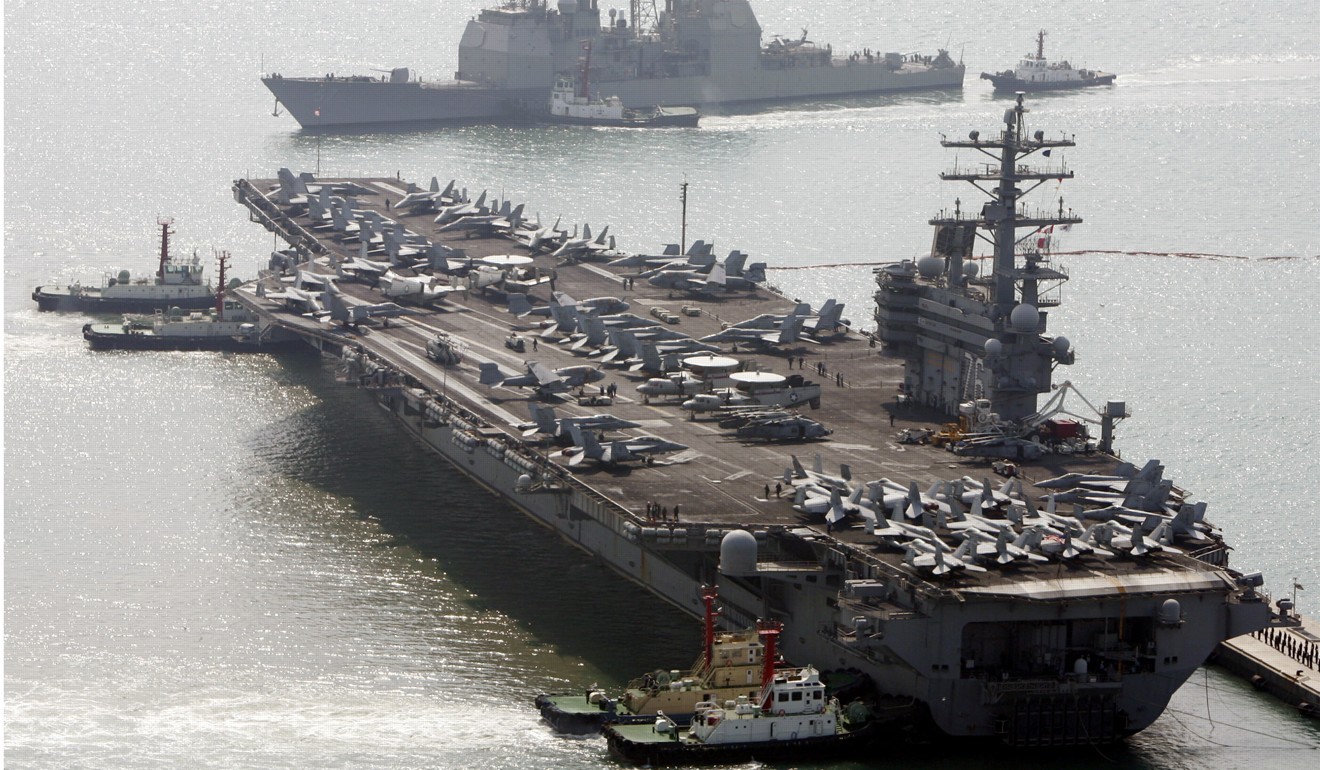
China seeks closer dialogue with Japan, South Korea to tackle threat from Pyongyang
Xi Jinping tells Moon Jae-in that the situation on the Korean peninsula is at a ‘pivotal stage’, while Shinzo Abe hails ‘fresh start’ to ties with Beijing
China on Saturday vowed to strengthen coordination with its neighbours in dealing with the North Korean issue, as US President Donald Trump complimented Beijing on helping to rein in Pyongyang.
The situation on the Korean peninsula dominated discussions at the Asia-Pacific Economic Cooperation summit in the central Vietnamese city of Da Nang.
In a meeting with Chinese President Xi Jinping, Japanese Prime Minister Shinzo Abe said he hoped China would continue implementing sanctions backed by the United Nations against North Korea.
Abe also said China and Japan agreed to deepen cooperation on Pyongyang, and hailed a “fresh start” to ties between Beijing and Tokyo.
“At the end of the meeting, President Xi said this is a meeting that marks a fresh start of relations between Japan and China. I totally feel the same way,” he said.
Abe said he had proposed visiting China at an appropriate time, which would then be followed by Xi visiting Japan.
According to Norio Maruyama, press secretary for the Japanese foreign ministry, Japan had discussed North Korea at meetings with other state leaders to “deliver the message that we consider important at this time”.
“We consider dialogue for the sake of dialogue meaningless. But we need to raise the pressure … so that North Korea finds it necessary to come back to the negotiating table,” he said.
Xi said stable Sino-Japan relations was important to the region, but added that Japan needed to do more to improve mutual trust between the two nations, Xinhua reported.
In a separate meeting with South Korean President Moon Jae-in, Xi said the situation on the Korean peninsula had reached a “pivotal” stage, Yonhap news agency reported.
After the meeting, South Korea’s presidential office said that the two nations would strengthen strategic dialogue and continue discussions next month when Moon was expected to visit China.
The leaders “shared the view on the need to stably manage the current security conditions on the Korean peninsula in relation to North Korea’s nuclear and missile programmes, and agreed to seek to peacefully resolve the North Korean nuclear issue through dialogue”, the office said.

The sabre-rattling has complicated China’s relations with South Korea. Earlier in the year, Seoul deployed a US missile defence system, which Beijing regards as a threat to its security, but which Seoul feels is necessary in light of the provocation by Pyongyang.
On October 31, the two countries agreed to normalise relations, and Seoul said last week it was not considering any additional deployment of the Terminal High Altitude Area Defence (THAAD) system.
Xi said China was willing to work with South Korea to improve bilateral ties, but called on Seoul to make responsible decisions about THAAD.

Officials are seeking to resume an annual summit between China, Japan and South Korea, which was scheduled for July but postponed as Beijing and Tokyo locked horns over maritime sovereignty in the East China Sea, and China and South Korea squabbled over THAAD.
Lian Degui, a professor with the School of Japanese Studies at Shanghai International Studies University, said Trump’s visits to China, Japan and South Korea sent a signal that the US needed cooperation among the three countries to tackle the North Korean nuclear issue.
“There are signs of cooperation and improving relations between China, South Korea and Japan. We hope the trilateral summit will resume soon,” he said.

But Cui Zhiying, an international relations professor at Tongji University in Shanghai, took a more cautious view.
“Better not to be too optimistic. Despite South Korea promising to amend its relationship with China, we need to see how Seoul is going to handle the THAAD [issue].”
Also on Saturday, the US and South Korea launched a joint naval drill in a show of strength against North Korean leader Kim Jong-un. The four-day exercise in the western Pacific involves three US aircraft carriers – USS Ronald Reagan, USS Nimitz and USS Theodore Roosevelt – and seven South Korean warships including three destroyers.
And after his fiery speech in Da Nang on Friday, Trump arrived in the Vietnamese capital Hanoi on Saturday, where he described Xi as a “good man” who “wants to do right”. He added that he hoped China would continue to ratchet up the pressure on its restive neighbour.
Trump held talks with Xi on Thursday, which led to the signing of business deals worth more than US$253 billion.
Additional reporting by Reuters


